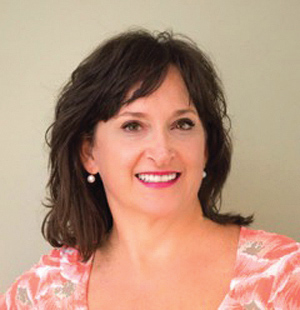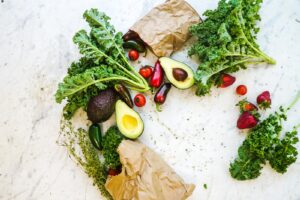My husband, Doug, is a golfer. He loves to practice and to play tournament golf. He also likes to watch golf on TV. I am not a golfer, although I have tried. I played a little in high school and I was very bad. Then in college I took golf as one of my required PE credits. I made a B in the class but still could not play well. When Doug and I started dating years later I tried golf again. I was still bad. Even though I can’t play, I have learned a lot about golf over the years. I have also learned some things about life through the lens of golf.
Recently, we were in the car driving to Hilton Head, listening to Hank Haney Golf Radio during part of our drive. Hank Haney is one of the top golf teachers in America. He has coached Tiger Woods as well as other great professional and amateur players. His radio show is a call-in type show where people ask questions about pro golf as well as their personal games.
On this show one of his most frequent suggestions was to “fix your biggest miss.” This advice applied to pros as well as the amateur players who called in. Haney urged golfers to figure out the one worst aspect of their golf game and work only on improving that area. Only when that area is much improved should another area be tackled.
Doug and I decided this was excellent advice, not only for golf but for many aspects of life. I have found that people can easily become overwhelmed when trying to make diet and lifestyle changes. It is difficult to make many simultaneous changes effectively. This is where the “fix your biggest miss” advice can be helpful.
My Biggest Miss
In 2007 I began having headaches and intestinal pains that became almost constant. I went to the doctor several times, but never could discover the cause. Finally, in mid-2008, I discovered I had gluten sensitivity, as well as several other food allergies and sensitivities. I was overwhelmed. I looked in my pantry and found nothing I could eat. When I went to the grocery store I did not know what to do. As I read ingredient labels it seemed that everything included wheat/gluten, soy, corn or all three.
Gluten sensitivity was my primary health issue. When I avoided gluten in my food, my headaches and intestinal issues resolved by 90 percent. I decided to “fix my biggest miss” by eliminating gluten from my diet completely. At that time, I knew nothing about healthy eating. My “healthy” lunch at work consisted of a sandwich with a diet soft drink and a couple of low fat cookies. Over the next few years I learned a lot more about what was truly involved in eating a nutritious diet. I even went back to college and got a degree in nutrition. At this early point, I just concentrated on finding gluten-free food substitutes for what I was eating on a regular basis. I purchased gluten-free bread and cereal instead of the gluten-filled ones. I found gluten-free cookies I could eat.
When I felt confident about eating gluten-free, I then worked on eliminating corn and soy from my diet. My diet has changed gradually over the years to become even more healthy without processed foods as I learned more and gained confidence.
Fixing Your Biggest Miss
Let’s consider Sarah. At her last few annual checkups with her doctor, her triglyceride count has been increasing, as well as has her fasting blood sugar levels. Her latest triglyceride level was 175 and her blood sugar was 115, both higher than normal. Sarah has a sweet tooth. Her habit is to eat dessert after every meal. She also often eats a candy bar or cookies from the vending machine as her afternoon snack at work. Sarah knows that high triglycerides and high blood sugar both can be affected by the amount of added sugar in the diet, so she decided to eliminate added sugar for one month.
Although it was hard for Sarah to stop eating sugar, but she did not try to change anything else in her diet for that month. By the end of the month, her tastes changed so that she no longer craved sweet foods. Now it is much easier for her to continue to avoid sugary treats. This diet change was also reflected in her bloodwork results. At the next annual checkup, her triglyceride levels had fallen to 150 and her fasting blood sugar was 102. Sarah successfully fixed one of the biggest misses in her diet.
Is some area of your diet or lifestyle having a detrimental affect on your health? Perhaps you have a chronic health problem. If you have diabetes, your biggest miss may be eating too much processed sugar. If you have high blood pressure, your biggest miss may be eating too much salt. If you have a food sensitivity, your biggest problem may be identifying the problem foods or to stop eating them. Identify your problem and then work on changing it. Work on only one area at a time for your greatest probability of success.
For problems with your golf game, check out Hank Haney’s radio show. For dietary needs, contact me for a free, 20-minute nutrition consultation to see if I can help you fix your biggest miss.

Ginger Hudock is a holistic nutrition consultant in Aiken, SC. Her business, Nutrition with Ginger, helps clients discover the power of personalized, whole foods nutrition to prevent and heal from many chronic health concerns, especially food allergies and sensitivities. She is a graduate of the Nutrition Consultant Program at Hawthorn University and is also a Certified Gluten Practitioner. To sign up for nutrition consultation sessions or her newsletter and blog where she gives more nutrition news and recipes, visit Ginger’s website at www.NutritionwithGinger.net, or call 803-640-4381.






